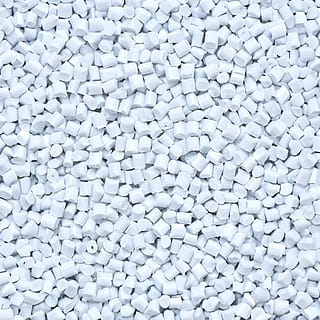Recycled polyester: Our PET project
One way we’re reducing use of fossil fuels is by making fibres from an item that might be sitting in your backpack right now—a plastic bottle.

Polyester is great for riders. It makes our gear light, long-lasting and quick-drying.
But while it’s the best material for our gear right now, like all clothing materials, it has some damaging environmental impacts.
For one, it’s made from petroleum and energy-intensive, hence producing significant greenhouse gases.
That’s why we use recycled polyester in all our gear. Right now, 90% of the polyester we use is recycled.
With millions of recyclable PET (polyethylene terephthalate) bottles discarded daily, recycling these for our polyester significantly diminishes waste, reducing strain on the world’s landfills and creating fabric in a considerably more energy-efficient and less polluting way.

We work with a supplier which turns countless PET plastic water bottles and other waste into fibres for our base layers, jackets and pants. And thanks to improving technology, the quality and comfort of recycled polyester is now just as good as, or even surpasses, virgin polyester.
All this is helping reduce our carbon footprint. According to our supplier (whose emissions data is third-party verified), the recycled polyester yarn we use is proven to have 77% less CO2 emissions and 87% less energy usage than if we were to use virgin polyester.

Recycled polyester is by no means a perfect solution. The recycling process itself requires a fair bit of energy that generates emissions, and it can also create other pollution.
But it’s something we are deeply passionate about.
We are dedicated to knowing the factors for real. So much so, we even introduced a test on the bulk of polyester we get from our suppliers to double check it is recycled like the paperwork says. It’s called an NMR (Nuclear Molecular Resonance) test and it detects IPA resin (Isophtahlic acid), which is used in plastic bottle production.
What’s next?
We’ve made substantial progress in our journey. In financial year 2022, 75% of polyester by weight in our products was recycled polyester. In financial year 2023 that’s risen to 90%.

We want to keep improving, and one area of focus is the 10% of polyester we use that’s not currently recycled.
The main reason for that is that we are still using up leftover fabric inventory from Fall/Winter 22/23 rather than throwing it away.
We also continue to explore off-piste solutions from exploring new materials to refining our manufacturing processes.
Right now, recycled polyester has become an integral part of what we do: Making comfortable snow sports gear that can endure season after season and help sustain the slopes we all ride on.